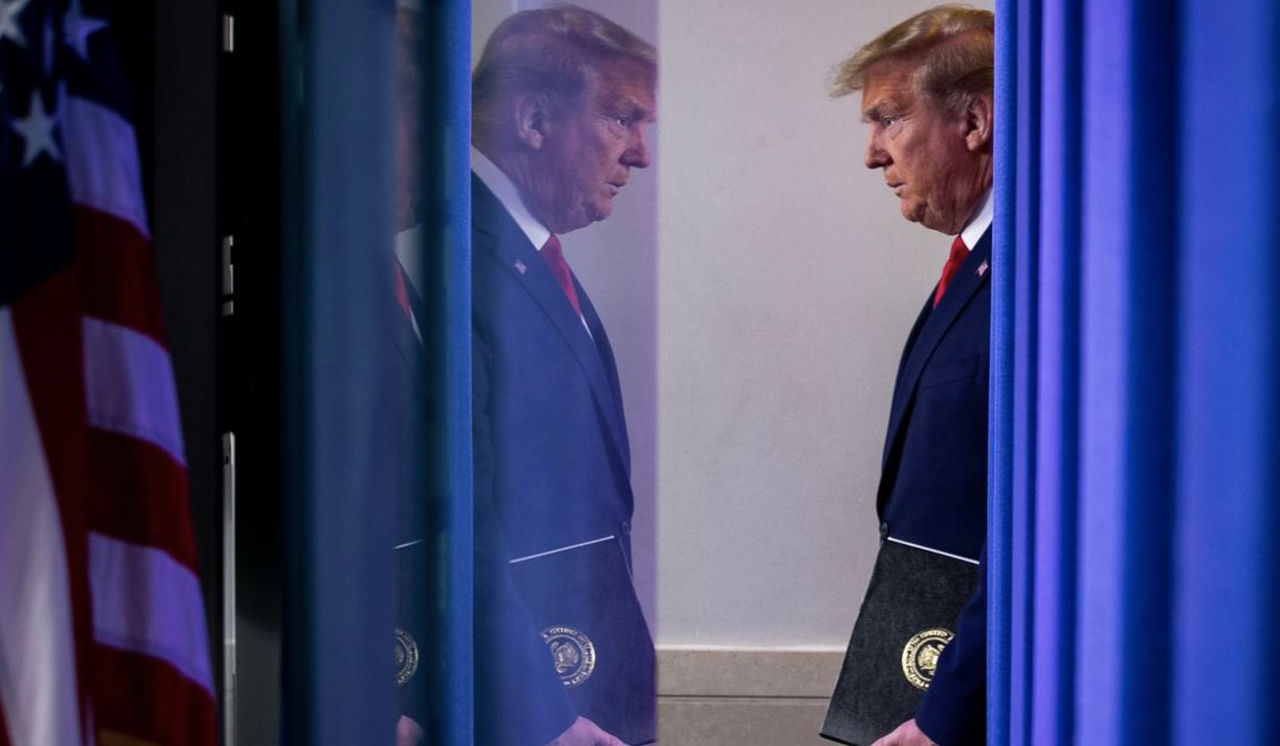Critics Slam Trump For Claiming China Should Face “Consequences” If It “Knowingly” Unleashed The Coronavirus
At the conclusion of a week that saw the already-tense relationship between the US and China further strained by reports of CPC-sanctioned skullduggery during the early days of the outbreak in Wuhan, President Trump decided to kick things up a notch during his Friday task force press briefing, where he said for the first time that if Beijing was “knowingly responsible” for unleashing the virus on the world, then it should face “consequences.”
Here’s the exact quote, courtesy of Reuters:
“It could have been stopped in China before it started and it wasn’t, and the whole world is suffering because of it,” Trump said.
“If it was a mistake, a mistake is a mistake. But if they were knowingly responsible, yeah, I mean, then sure there should be consequences,” Trump said. He did not elaborate on what actions the United States might take.
It’s not exactly the forceful accusation of culpability that Trump’s critics – including the Chinese – have made it out to be over the last 24 hours.
Let’s take a step back for those who haven’t been closely following the back-and-forth between Trump and Beijing: Trump triggered a torrent of criticism from the mainstream US and international press by revoking US funding for the WHO pending an investigation into a ‘coverup’ implying that the WHO helped China conceal the seriousness of the outbreak in Wuhan during its early days.
As far as the world knows, China didn’t officially notify the WHO and the rest of the international community about the outbreak until New Year’s Eve, 2019. Though during the weeks before, whispers about an outbreak emerged as 8 doctors from Wuhan tried to warn the public before being abruptly silenced by local police. Beijing has blamed this early suppression entirely on local officials and promised to “nail them to the pillar of shame for all of history.” However, local officials around the country have reportedly defended their actions by accusing Beijing of tying their hands.
And it wasn’t until late January – nearly two months after the outbreak began – that officials in China finally publicly acknowledged something they had known for at least a week: the virus was spreading between humans, and several health care workers had been infected. Though Beijing finally managed to get its arms around the outbreak, it took a herculean effort involving draconian crackdowns that simply wouldn’t be politically feasible in the west.
Then, earlier this week, Fox News reported that US intel suspects the virus may actually have leaked out of a Level 4 bio-safety lab in Wuhan – something we were de-platformed for saying a few months back – not far from the wet market identified as the true source of origin. That kicked off a round of finger-pointing by the US and China, which had seemingly died down by the time Trump made his comment last night.
Now, as the SCMP reports, academics in Beijing are shrugging the comments off with tough talk, while President Xi and the Politburo likely seethe in secret at even the vaguest notion that China should be made to make restitution to the world for unleashing the virus – if that is indeed what happened.
Victor Gao, a vice-president of the Centre for China and Globalisation, a Beijing-based think-tank, said it was “not meaningful” to guess what Trump would do next, adding there was no justification for “Trump or whichever politician in the United States” to blame China.
“Actions of prejudice and bigotry will be as bad as the coronavirus itself,” Gao said. “It will come back to haunt them one day, one way or another”.
Global Times editor Hu Xijin, a prominent mouthpiece for Beijing, tweeted a cryptic criticism of Trump and the US response to the virus, snidely claiming that Americans are very “good tempered” for tolerating the weak response that has allowed tens of thousands of Americans to die.
President Trump couldn’t understand why China’s death toll is much lower than US’s. It’s because Chinese govt has adopted scientific&effective control measures.Loose political system of the US allows more than 4000 people die of pandemic every day. Americans are so good tempered.
— Hu Xijin 胡锡进 (@HuXijin_GT) April 19, 2020
But will the world ever know even an accurate approximation of how many died in Wuhan, not to mention the rest of the country? Whether we learn more about the early days of the outbreak, or not, could have a big influence on the US-China relationship from an economic and even military perspective in the weeks, months and years to come.
Tyler Durden
Sun, 04/19/2020 – 13:30
